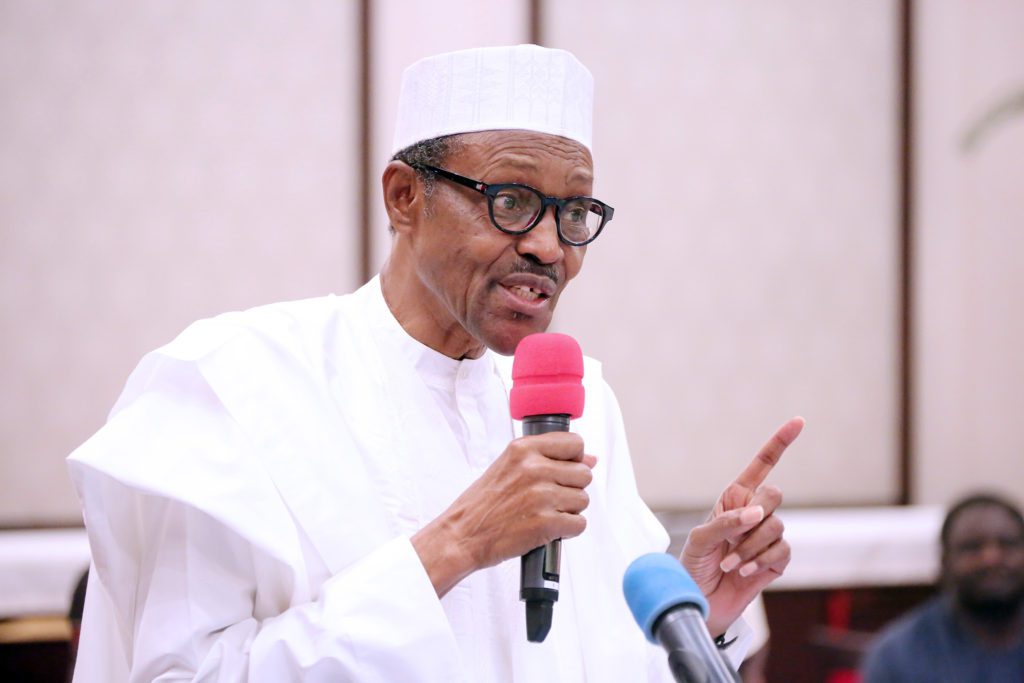
Last Saturday, President Mohammadu Buhari declined assent to the Electoral (Amendment) Bill, 2018 passed by the National Assembly for presidential assent according to the provisions of the 1999 Constitution (amended).
Mr President, through a letter to the National Assembly stated that he was declining because he believes that a new regulation coming in this far into the 2019 general election process “could create some uncertainty about the applicable legislation to govern the process.” He also requested the National Assembly to make some clarifications on some sections of the amended bill. Ever since this development the nation has witnessed mixed reactions from different quarters.
Section 58 (4) and (5) of constitution of the Federal Republic of Nigeria 1999 (as amended) provides thus:
(4) Where a bill is presented to the President for assent, he shall within thirty days thereof signify that he assents or that he withholds assent.
(5) Where the President withholds his assent and the bill is again passed by each House by two-thirds majority, the bill shall become law and the assent of the President shall not be required.
The truth is that with the 2019 general elections less than three months away, an amendment on the Electoral Act would definitely mount some more pressure on the Independent National Electoral Commission (INEC) and make it’s job more demanding especially considering that the nature of the amendments proposeds by the parliaments are such that could alter the timetable of the forthcoming 2019 general elections amongst other plans already made by the INEC.
However, we as a Nation, we must look into the contents of the amendments proposed by the National Assembly as they could save us from a miscarriage of our democracy because it is evident that elections in this country have not been anywhere near perfect, especially judging by the most recent ones. Also the forthcoming Nigeria general elections is one that has been analysed as highly volatile and difficult to predict. This might be because of the political tension in the country and the notability of the key contestants. For this cause we must buckle up our electoral system and mend it properly in preparation for the coming days even if that will cause the INEC to put in more work.
With a close look into the proposed Electoral (Amendment) Bill, 2018, it is obvious that the amendments do not really seek to completely overhaul the framework of the electoral process but to make improvements to the Act in line with the current realities on ground and availabile provisions of modern technology. Some of the proposed amendments bothered on improved access of information for electorates, to instil order in elections, encourage increased participation and to include penalties for election offenders both among officials of the INEC and the citizenry.
In section 19 of the 2015 Electoral Act, for example, it “mandates the Commission to appoint a period not less than 5 days and not more than 14 days to display the voters register for public scrutiny. Objections relating to omitted names must also be raised or filed within this period.” In the 2018 amendment, 19(1), the Commission is “mandated to publish the voters register at every registration area, its official website(s) or any website established by the Commission for period of 7 days. This is to give the public an opportunity to search for their names and draw the Commission’s attention to any observation/omission. The Commission is also mandated to assign the period for publishing the voters’ register no later than 30 days to a general election.Under the proposed subsection 19(1A), the Commission is mandated to consider all complaints to the voters register within 14 days of its publication.
INEC officers who fail to publish the voters register within the time frame proposed could face a criminal penalty of 6 months imprisonment, a fine of N100, 000 or both under the proposed 19(4).
Interestingly also, in section 8 of the 2015 Act, provision is made “for the appointment and functions of the Secretary to the Independent National Electoral Commission (INEC), as well as other staff of the Commission.”
The corresponding amendment however, seeks to “penalize persons who intentionally fail to disclose their affiliation or membership of a political party in a bid to secure an appointment with the Commission. This failure to disclose such information attracts a fine of at least N5, 000,000, imprisonment for at least 5 years or both.” This is in line with the Commission’s principle of being non-partisan.
Perhaps the most interesting of the amendments is in section 52(2) which originally provided for conduct of polls by open secret balloting. Enacted in 2015, this provision gives INEC discretion to determine the procedure for voting in an election. Notwithstanding, the 2018 amendment now seeks to further amend the provision to mandate the Commission to conduct elections by “electronic voting or any other method of voting as it may determine from time to time.”
Other areas covered by the bill includes limitation of election expanses, regulation of campaign broadcast and campaigning, party registration, post-election procedures and collation of results, counting of votes, use of smart voters cards for accreditation, online and offline publishing of voters register, ballot box handling, party nomination procedures among others.
The National Assembly recently ratified and approved a huge amount for INEC’s budget for the 2019 general election of which, according to Senator Biodun Olujimi, “70 per cent of the INEC budget has to do with the funding of card readers and other equipment needed for the election.”
Having made these provisions for electronic voting, the National Assembly therefore makes regulations to accommodate the new method of voting. But as it stands now, Mr Buhari would not have this bill come into effect in the 2019 general elections in which he is a contestant.
The President’s reason for declining assent to the bill based on his fears over the time left before the next general election, sounds reasonable until one finds out that this is the fourth time the President will be presented with the bill by the Parliaments after harmonization and this is the fourth time he will be declining assent to the bill for over a period of about a year now. Like a supervisor who intends to delay his PhD student’s thesis, the President has always returned the bill to the House with complaints each of the four times and now among other issues, he complains that the bill is coming in too late advising that it takes effect after 2019.
Does Mr. Buhari have ulterior motives for the 2019 elections which are not known now? Why does it look like he is employing a delay tactic to stop the Electoral Amendment Bill from coming into force in 2019 even though he agrees the bill is praiseworthy?
The most stunning of these attitudes is that the President waits till the last days of the thirty days provided him by the constitution to respond to the bill each time.
With the allegations of cases of underaged voting in the North during the 2015 Presidential Elections, reports of cases of electoral violence during the Osun rerun elections of 2018 among other electoral irregularities that we have frequently reported both by local and international bodies, we must thread carefully at these times.
The betterment of our electoral process should be topmost in our priority now even if we will have to postpone the 2019 general elections for the new regulations to be effected.
Since the decline last Saturday, members of the Nigerian Senate have promised to begin the process of overriding the President. The Senate spokesperson, Senator Ben Murray-Bruce, has said that the red chamber had rejected Buhari’s reasons for declining assent to the legislation and would do everything possible to override his action as planery resumes this Tuesday.
According to the section 58(5) of the constitution, only a two-third majority of the legislators can override the requirement of presidential assent. Will the House make this number seeing that electioneering activities have kept many lawmakers away from the Hallowed Chamber?
As we hope for a better Nigeria at this defining moments, we must be responsible too as citizens and electorates. 12 million, that is the number of Permanent Voters Cards INEC still has in its possessions yet to be collected by Nigerians. If you have registered for the voters card and you don’t have your PVC yet, it’s time to visit the centre you registered for your PVC or locate your PVC at pvc.inecnigeria.org. You owe your children a better Nigeria and it begins with you, yes, you, voting in the right government.
God bless Nigeria.




Leave a Reply